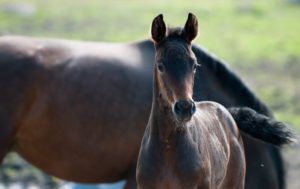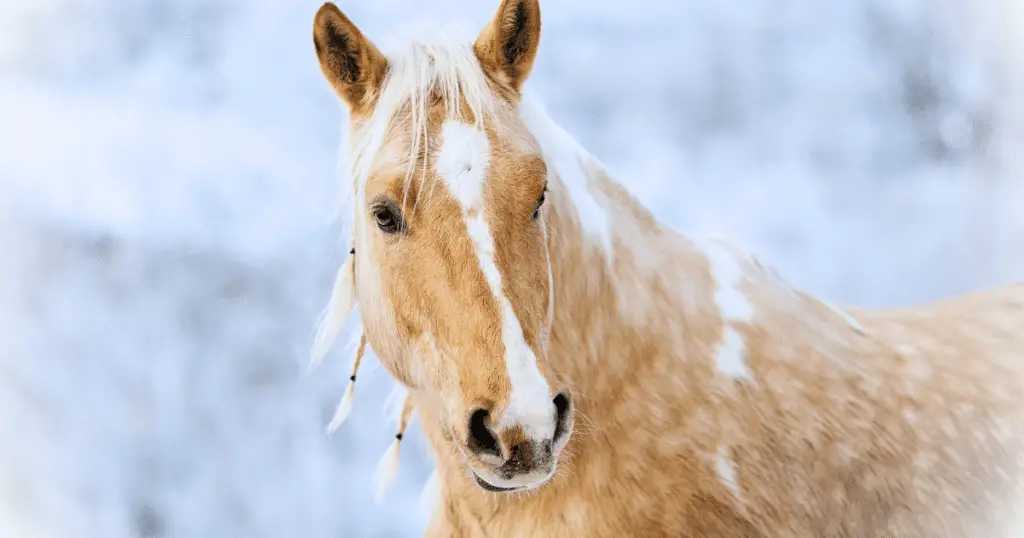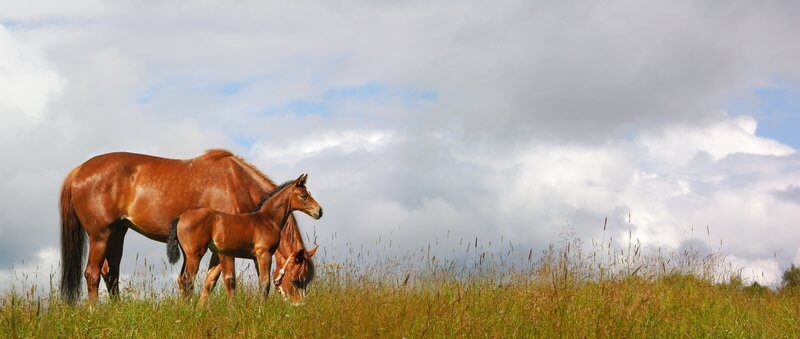
As a horse breeder, one of the most important things to ensure is that your foal is drinking enough milk from its mother. It’s natural to worry about whether your foal is getting enough milk, especially if it’s your first time breeding a horse. Fortunately, there are some signs to look out for that can help you determine whether your foal is drinking enough milk or not.
Firstly, observe your foal’s behavior around its mother. A healthy foal will nuzzle and suckle from its mother frequently, and will often be seen lying down and sleeping after a feed. If your foal seems restless, agitated, or is not interested in nursing, it may be a sign that it’s not getting enough milk. Additionally, monitor your foal’s weight gain. A foal should gain weight steadily in the first few weeks of life, and if it’s not gaining weight or is losing weight, it may be an indication of a milk supply issue. The flank is the best area to look at for a foal not getting enough milk as they will be hollow there.
It’s important to note that not all mares produce the same amount of milk, and some may have more milk than their foal needs, while others may have less. Therefore, it’s crucial to keep a close eye on your foal’s behavior and weight gain, and consult with a veterinarian if you have any concerns about your foal’s milk intake. By following these tips, you can ensure that your foal is getting the nutrition it needs to grow up healthy and strong.
Signs of Dehydration in Foals
As a responsible horse owner, it is important to ensure that your foal is drinking enough milk from its mother. Dehydration can be a serious issue for foals, and it is crucial to be able to recognize the signs of dehydration in order to take appropriate action. Here are some common signs of dehydration in foals:
Dry Mucous Membranes
One of the most noticeable signs of dehydration in foals is dry mucous membranes. This can be observed by checking the inside of the foal’s mouth, which should be moist and pink. If the mucous membranes are dry and sticky, this is a clear indication that the foal is dehydrated.
Sunken Eyes
Another sign of dehydration in foals is sunken eyes. This can be observed by looking at the foal’s eyes, which should be bright and clear. If the eyes appear dull and sunken, this is a clear indication that the foal is dehydrated.
Lack of Urination
If a foal is not drinking enough milk, it will not produce enough urine. This can be observed by checking the bedding in the foal’s stable if stabled. If there is little to no urine present, this is a clear indication that the foal is dehydrated.
Lethargy
Dehydration can also cause foals to become lethargic and weak. If a foal is not drinking enough milk, it will not have enough energy to play and run around. If you notice that your foal is not as active as usual, this may be a sign that it is dehydrated.
It is important to remember that dehydration can be a serious issue for foals, and it is important to take action if you suspect that your foal is dehydrated. If you notice any of these signs, it is important to contact your veterinarian immediately.
Constant Nursing
Foals that aren’t getting enough milk will often be constantly nursing and nuzzling at their mothers udder. They will often get kicked by their mother because they are constantly trying to get milk, which can be painful to the mother.
Assessing Milk Intake
Observation
Observation is one of the easiest ways to assess if your foal is drinking enough milk. You can observe your foal’s nursing behavior and the frequency of nursing. A healthy foal will typically nurse every 1-2 hours and will actively seek out the mare’s udder. The foal should also appear content and relaxed after nursing.
It is important to note that some foals may nurse for shorter periods of time but more frequently, while others may nurse for longer periods of time but less frequently. As long as the foal is gaining weight and appears healthy, both patterns are normal.
Monitoring Growth
Monitoring your foal’s growth is also a good way to assess milk intake. A healthy foal should have a sleek and shiny coat, bright eyes, and good muscle tone. The foal should also have a round belly and a well-formed, firm stool.
If you notice any changes in your foal’s appearance or behavior, such as a dull coat, sunken eyes, or loose stool, it may be a sign that your foal is not drinking enough milk. In this case, it is important to contact your veterinarian for further evaluation.
Factors Affecting Milk Intake
As a horse owner, it is important to ensure that your foal is getting enough milk from its mother. There are several factors that can affect milk intake in foals:
Mare’s Milk Production
The amount of milk that a mare produces can vary depending on several factors, including the mare’s age, breed, and overall health. If the mare is not producing enough milk, the foal may not be getting enough to eat. It is important to monitor the mare’s milk production and seek veterinary care if there are any concerns.
Foal’s Appetite
Just like people, foals have different appetites. Some foals may be more interested in nursing than others, and some may prefer to nurse more frequently but for shorter periods of time. It is important to observe your foal’s nursing habits to ensure that it is getting enough milk.
Mare and Foal Bonding
The bond between a mare and her foal is important for many reasons, including milk intake. Foals that are more bonded with their mothers may nurse more frequently and for longer periods of time. It is important to allow the mare and foal to bond naturally, but also to monitor the foal’s milk intake to ensure that it is getting enough to eat.
Environmental Factors
The environment can also affect a foal’s milk intake. Foals that are stressed or uncomfortable may not nurse as frequently or for as long as they should. It is important to provide a comfortable and safe environment for both the mare and foal to ensure that they are both healthy and happy. If the mare is stressed she may not stand long enough for the foal to nurse.
Tips to Encourage Milk Intake
Ensuring Proper Latching
One of the most important things to ensure adequate milk intake is to make sure that the foal is latching on properly. This means that the foal’s mouth should be positioned correctly on the mare’s teat so that it can suckle effectively. If the foal is having difficulty latching, it may be helpful to seek the advice of a veterinarian or an experienced breeder.
Feeding the Mare a Balanced Diet
The mare’s diet plays a crucial role in the quality and quantity of milk she produces. It is important to provide the mare with a balanced diet that includes adequate amounts of protein, vitamins, and minerals. This can be achieved through a combination of good quality hay and a specially formulated mare and foal feed.
Providing a Comfortable Environment
A comfortable and stress-free environment is essential for a mare to produce milk and for a foal to suckle effectively. The mare should be kept in a clean and well-ventilated stable with plenty of fresh water and access to good quality hay if you want to stable them. The foal should also have enough space to move around and play.



